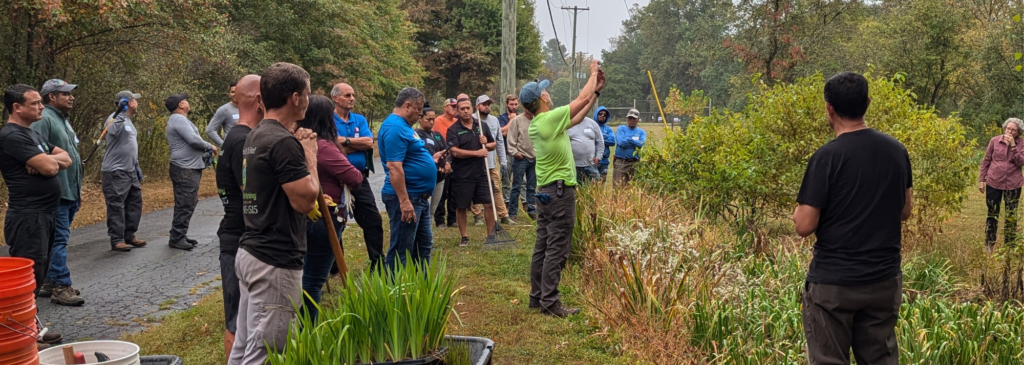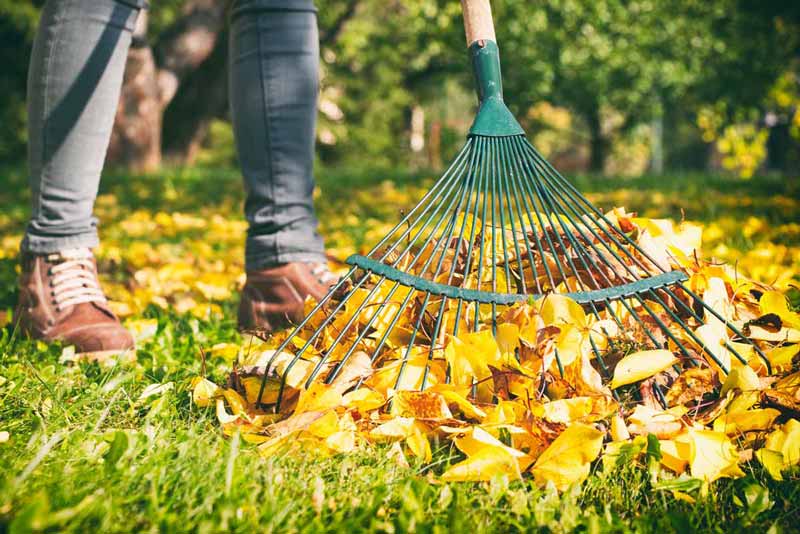Every property has the potential to soak up stormwater and serve as a carbon sink for greenhouse gas emissions, while also providing habitat for birds and other wildlife.
You can help by following sustainable landscaping practices, shifting away from gas-powered equipment, and educating your customers.
Registration in Princeton is legally required and ensures the health and safety of landscaping workers by requiring proof of workers’ compensation.
Complete the online registration to be added to the list of registered landscapers.
Once registered, fill out our Sustainable Landscapers form to be featured on our website and promoted to the community.
If you have any questions, reach out to info@sustainableprinceton.org

In partnership with the Watershed Institute, Sustainable Princeton offers free workshops for professional landscapers. Learn more about the workshop topics and past participants.
The Small Business Development Center at TCNJ is able to provide support to landscape businesses, including free one-on-one sessions with a consultant for advice on meeting municipal regulations regarding insurance, managing their businesses, and obtaining low-interest loans for purchasing new equipment. Consultations are available in both English and Spanish. Visit their website for more information.
The Sustainable Business Registry helps businesses achieve greater sustainability goals by providing a roadmap and resources. Register your landscaping business and join the others on the Registry.
There’s a growing awareness of the health implications and nuisance of leaf blowers and lawnmowers, which is why gas-powered leaf blowers are not permitted from May 16 through September 30 in Princeton.
Research options for electric equipment, so you can meet your customer’s requests.
Battery-powered machines sharply reduce air pollution and are significantly quieter than gas-powered versions. Consider adding electric equipment to your fleet (and spreading the word about this great, clean air service). The good news is that prices for commercial electric mowers models are beginning to drop.
Ensure that any leaf blowers or mowers follow the rules stated in Princeton’s noise ordinance.
When possible, use rakes and brooms to move leaves around. This is especially true at the beginning or end of the season when there are relatively few leaves to collect.

Sustainable land care involves more than just ending the use of synthetic pesticides or herbicides. With sustainable landscaping, the soil, plants, and animals actually sustain each other.
Consider areas of property that could be planted with meadow grasses. This will support pollinators and birds and, best of all, will reduce mowing maintenance.
Incorporate a diversity of native plants and eliminate invasive or exotic species. To prevent pest destruction, avoid over-planting a single plant species.
To build healthy soil, increase its organic matter, restore proper pH, and reduce the application of fungicides and acidic fertilizers.
Consider whether additional trees can be planted. They provide shade, soak up stormwater and are a carbon sink — just to name a few of the benefits.
Mulch leaves back into the property. This nourishes the soil and can eliminate the use (and cost) of fertilizers.
Consider incorporating a rain garden or bioswales at the edges of parking lots and other low areas. The more stormwater properties soak up, the less chance of water causing issues elsewhere.
Sustainable Princeton is a non-partisan, non-profit organization in Princeton, NJ with a mission to inspire our community to develop and implement solutions that positively impact our environment. It’s our vision that Princeton be a model town that examines every action through the lens of sustainability ensuring a healthy environment, a strong economy, and the wellbeing of all community members now and in the future.
Investing in Sustainable Princeton is an investment in the heart of our community, our homes, our families, and our shared future. Your support empowers local initiatives that make Princeton a model town for sustainability, ensuring a healthy environment, a strong economy, and the well-being of all residents.